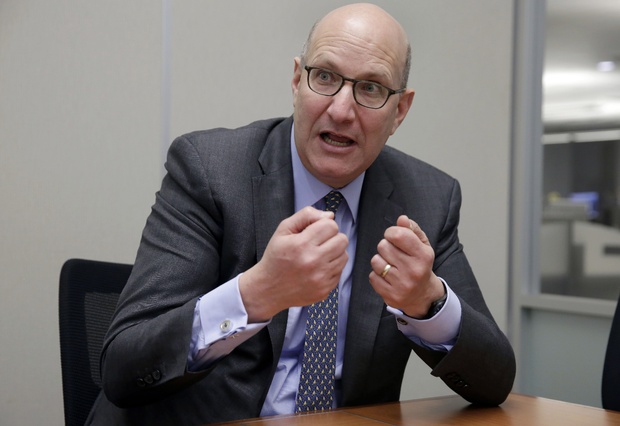
by mattchristensen00 | Jan 14, 2015 |
By Sarah Goodyear Last fall, when a group of deep-pocketed investors took over Alta Bicycle Share—the troubled company that operates bike-share systems in New York, Washington, D.C., Chicago, and several other major cities—one of the first moves they made was to bring on Jay Walder to head up the company. Walder has a long track record running big municipal transportation systems, in New York, London, and Hong Kong. Along with the shift of headquarters from Portland, Oregon, to New York, the hire was a signal that things were going to be different for the bike-share pioneer, which had been struggling financially, going forward. Wednesday, the company’s transformation took another step, with the announcement that it has a new name, Motivate. Walder says it’s meant to convey energy, action, movement, and evolution. I talked with him by phone to find out what he’s been doing since he took over two and a half months ago and how the rebranded, refinanced company hopes to take bike-share into the future. The interview has been condensed and edited. My first question is about how you’re developing business models. How are these systems getting funded? Are the funding models sustainable? What is new on the business side? I think the question is well placed. There are any number of examples of good ideas that in the end didn’t have a sustainable financial foundation. We’ve seen very different views for funding models for very different cities across the U.S. and even globally. At one end of the spectrum is New York, where we have a model in which we are not receiving any public support at...
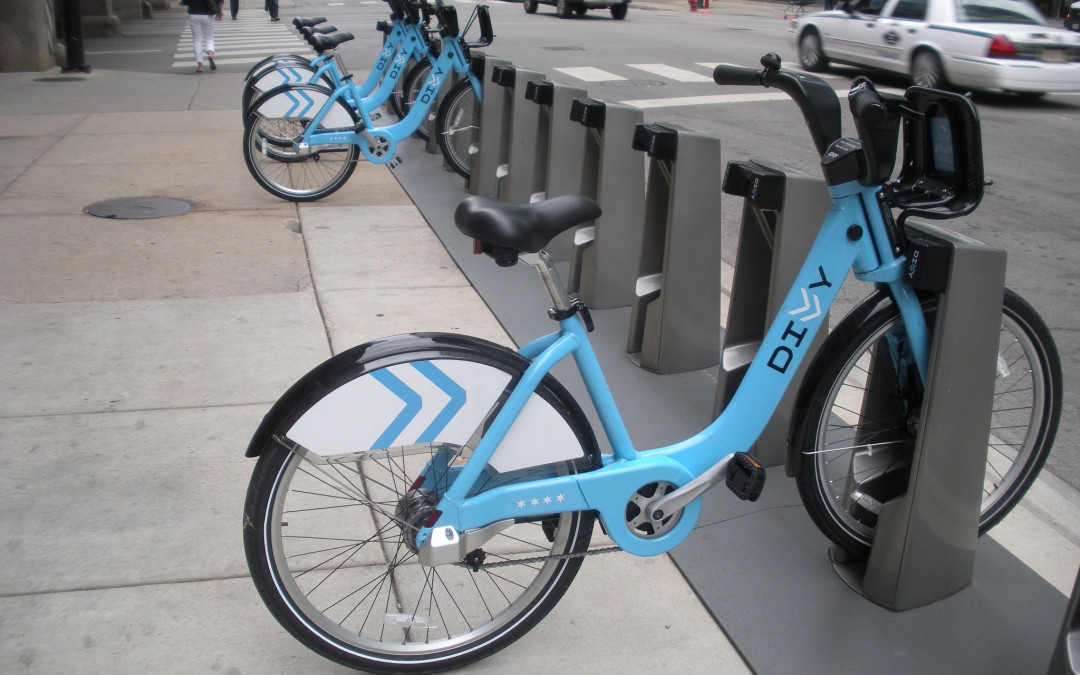
by mattchristensen00 | Oct 24, 2014 |
By Eric Jaffe The rise of bike-share as a popular mode of city transportation has been swift and impressive. A new report on the state of North American bike-share, which gives new meaning to the word “comprehensive,” puts the total number of users at more than 1.1 million as of 2012. And that’s before the launch of new systems in major cities like Chicago, San Francisco, and New York. Bike-share is not only here to stay—it’s still getting here. Unfortunately, it’s been especially slow to arrive for poor residents. Bike-share has struggled to reach low-income riders despite considerable (and continuing) efforts by leading systems—Capital Bikeshare in Washington, D.C., Hubway in Boston, and B-Cycle in Denver notable among them—and these struggles persist. Until bike-share resolves these income disparities, its development from niche amenity into legitimate form of public transit can’t be complete. Data in the new bike-share report underscore just how systemic the equity problem is. Let’s take a look first at numbers in the Twin Cities. Nice Ride is among the most successful bike-share system in the United States, and it’s certainly tried to reach poorer residents. But it still has room for improvement as far as equity goes. As our chart shows, low-income bike-share members are under-represented in the population, while high-income members are over-represented: (CityLab) Charting the figures Salt Lake City, we find the same trend to an even greater...
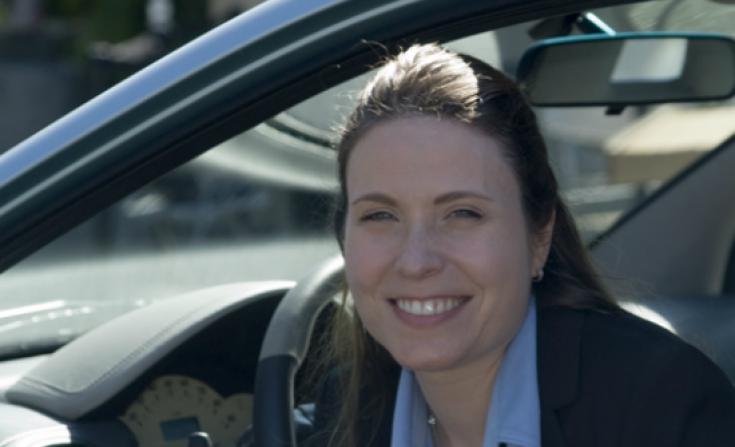
by mattchristensen00 | Oct 14, 2014 |
By Matthias Krause If you’ve attempted to dive deep into the topic of car sharing, chances are you’ve come across Susan Shaheen, or at least some of her studies. About 18 years ago she fell in love with the concept, even though she’d probably never put it that way. The idea of car sharing “resonated” with her, she said, as a Ph.D. student at the University of California at Davis looking for a dissertation topic. She saw a lecture by Michael Glotz-Richter, a German Marshall Fund Fellow from Bremen. She was fascinated by behavioral effects of people joining car sharing, and the resulting benefits for the environment, she recalled from her office at the University of California at Berkeley, home of the Institute of Transportation Studies, where she serves as a co-director of the Transportation Sustainability Research Center. “He essentially showed that 44 percent or 45 percent of vehicle kilometers traveled were declining due to the use of car sharing, and people were selling their cars or not buying cars, somewhere around 7 to 15 I think the numbers were,” Shaheen said. The reductions in energy use and CO2 emissions were notable, achieved by people changing their behavior. “I had been working on this idea of the station car that goes to and from the transit station. Is there a way that those vehicles could be shared and we could bring the concept of car sharing to the U.S.? And I was really deeply interested, and studying this by actually demonstrating it, putting a real project on the ground and seeing if we could get people to behave differently, and...
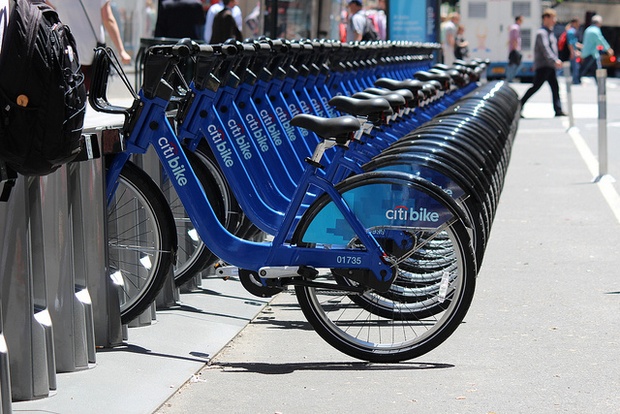
by mattchristensen00 | Jul 28, 2014 |
By Eric Jaffe Over the past few days, several New York media outlets have reported that Citi Bike, the city’s popular but financially struggling bike-share system, will soon get a much-needed influx of cash. The new money would likely go toward improving docking stations and expanding the network to other parts of the city. A spokesman for Mayor Bill de Blasio told the Wall Street Journal that bike-share “has become part of our public transportation system, and there is a lot riding on its success.” Those words come at the same time as a new research study—first referenced here by former D.C. and Chicago transportation chief Gabe Klein—offers the most persuasive evidence yet that bike-share serves as a genuine form of public transportation. Past work has found that bike-share members decrease their car use considerably: According to one survey, 52 percent did so in Minneapolis, and 41 percent in Washington, D.C. The new, more fine-grained analysis of bike-share use in these cities reveals that its role in the transit system varies based on the character of the host city. In larger cities with dense cores like D.C., bike-share may replace shorter transit trips; in smaller, more dispersed cities like Minneapolis, it may expand the entire public transport network. Berkeley researchers Elliot Martin and Susan Shaheen report the findings in an upcoming issue of the Journal of Transport Geography: The denser the urban environment (particularly for rail), the more bikesharing provides new connections that substitute for existing ones. The less dense the environment, the more bikesharing establishes new connections to the existing public transit system. That’s the take-home message. For the study...
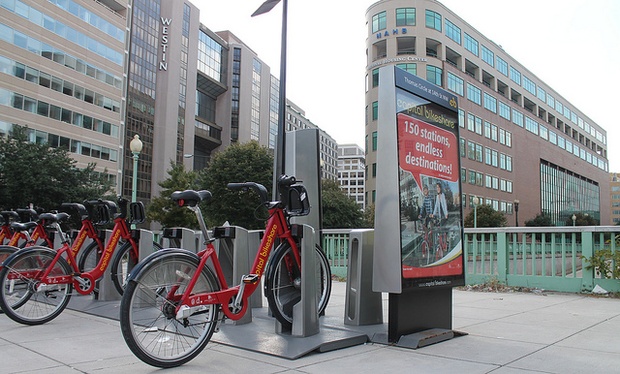
by mattchristensen00 | Jul 3, 2014 |
By Gabe Klein When we think about transit-oriented development, we typically think of rail stations. We know that in certain environments with density levels of X and height limits of Y, we can predict levels of investment of Z. But how would that equation hold up if Transit Oriented Development centered on a bike-share station, for instance, rather than rail stop? To answer that question, we need a better sense of how well bike-share performs as part of the larger transit system. We know that Americans have a deeply ingrained view of biking as a fun, recreational activity. (The Outdoor Association estimates that Americans spend $81 billion a year on bike-related expenses; airline tickets generate $51 billion by comparison.) I have theorized that this is why some people have such vitriolic reactions to cyclists. It’s like they’re angry that anyone could be having that much fun on their commute, when everyone should be suffering in traffic. With the advent of bike-share, there’s a move towards seeing cycling as a more basic form of transportation, especially in cities. The case for bike-share as transit is getting easier: A forthcoming study from Susan Shaheen and Elliot Martin reports that 40 percent to 55 percent of bike-share trips are work commutes. Their analysis shows that Capital Bikeshare in Washington, D.C., has displaced public transit trips—particularly Metro trips in the urban core—thereby increasing capacity on the congested rail network. It also increased transit ridership in less dense parts of the city and in the suburbs, providing a key first-to-last mile connection to rail and bus nodes. To read the entire article, click...






